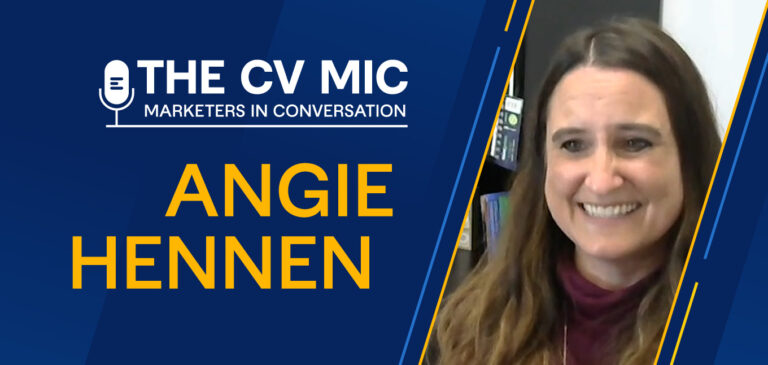Do you have the essential interviewing skills that can help you write like a professional journalist? Great interviewers embrace curiosity. They enjoy researching the topic and subject. They actively listen to the words and the silences between them, and they look for ways to make subject matter relatable to readers.
Not all writers will be lucky enough to interview famed astrophysicist Neil deGrasse Tyson, but we could all learn a lot about clarity in communications from watching him as a guest speaker or as a host of his TV talk show ‘StarTalk.’
Known for deftly dropping sound bites of cosmic knowledge to blow minds, deGrasse Tyson delves deeply into almost any subject matter and comes out sounding like an expert. He explains how he mastered the science of talking about science in a video by TimesTalks.
In this interview, deGrasse Tyson dances through the fields of astrophysics and science; media, pop culture and politics; and communications and education – with such virtuosity that he makes explaining the complexities of the universe understandable to a nine-year-old. (Watch the video. It’s no lie!)
How does he do it? And how can you — as editors and writers — become near-experts in any topic, be it: black holes, taxation, 18th Century Flemish painters, or local governance? Here are eight tips to learn his mastery and become an expert through your interviewing skills:
1. Embrace what you don’t know and follow your curiosity.
First, editors and writers, let go of fear. Interview smart people, influencers, change-makers, and everyday miracle-makers of all shapes and sizes. Pick up the phone and talk to them. Make sure they hold source knowledge of their field.
Aim for topics you don’t know much about, and look for guideposts: Learn all you can about a topic enough to explain it in simple language. If you trip up on a concept, write up a list of questions for your interview and go back to the source materials. See the Feynman Technique created by Nobel Prize Physicist Richard Feynman to understand how to master topics quickly.
Just like Neil deGrasse Tyson and Richard Feynman, a good writer intrinsically becomes curious about things they don’t know much about, and their observant mind can usually explain how things work by asking the right questions and attempting to explain it to others.
As a journalist with more than 15 years of writing and interviewing experience, asking questions and learning about things I know nothing about is what keeps me in the game.
Hopefully, with some tricks I picked up, and some borrowed from Neil deGrasse Tyson, you too can help people you are interviewing get to the heart of matters and engage them about any topic – especially areas where you have little to no expertise.
2. Research ahead of time, both the topic and your subject.
In old newsrooms, before Google, there used to be a department staffed with researchers (who we might now call “content miners”) who helped reporters learn the most about anything they needed to know before they left the newsroom to go out and interview people.
Now with search engines on smartphones, writers swim in a sea of too much information and sometimes have a tough time getting a handle on how to separate the meaning from the noise. Research becomes overwhelming, and sifting through articles that repeat the same (possibly wrong information) doesn’t always augment your purpose of getting a good interview. If you work smarter, and research more efficiently, you peel back the layers and can come to a better way at framing your interview.
When I prepare for an interview, I study the person I will interview:
- Where did they grow up?
- What were some of their regrets?
- What are they most known for?
- Is this what they most want to be known for?
- What burning questions remain at the heart of the work they are doing now?
When researching, I gravitate to first-person interviews, because what people have said about themselves, in their own words, serves as the window to plateaus you can explore with them that no one else has.
As Neil deGrasse Tyson said reflecting on influencers he met at the Hayden Planetarium in his youth that impacted him:
“I remember thinking: ‘Wow, these educators have such facility with words and ideas … and they will speak and then you want them to keep speaking, because you want to learn more about whatever it is they are talking about.
“I said to myself: ‘If I’m ever an educator, that’s the kind of educator I want to be.’
“And the scientists just knew so much, depth and breadth of the Universe.”
“And I said: ‘If I’m ever a scientist, I want the command of the subject like they have it.”
In reading that, you learn who Neil deGrasse Tyson was as a tyke. He loved learning and listening. He loved asking questions, and he went directly to the source to find his answers.
As writers and editors, it’s critical for us to engage those we interview with a facility with words and ideas while also acknowledging that the person we are interviewing will most certainly have a greater command of the subject – and that is perfectly the situation you want to create.
Going into an interview knowing what you and your audience don’t know will generate a load of questions you want answers to – which makes for a lively interview. You need to know enough to pique the expert’s interest in areas you want them to explore with you.
3. Pay attention to your subject’s words and tone.
Beyond the topical research, I also research the person’s way of expression.
More specifically, I look at their turn of phrase, the words and tone people use when expressing themselves. This helps me come up with questions. It doesn’t mean I ask questions in ways that mimic the way people I will interview talk, but if I need to rephrase or ask follow-up questions, I repeat back what they say in their own words, which shows how closely I listened.
Attention to their tone, sentence structure, their sense of humor pays off in ways you would not imagine during the interview. Looking at how someone expresses themselves encourages you to keep those ideas and concepts in their voice when you do the write-up.
Learn to ask open-ended questions to elicit the most thoughtful answers.
4. Build rapport and trust with the person you are interviewing.
When you watch Neil deGrasse Tyson talk to people he seems really relatable.
To warm up his interviewees, he eases them with humor (the self-deprecating-that-isn’t-fake-kind-of-humor-but-is-honest-and-humbling). He cajoles with word play and makes you feel like he and you are two smart people talking gravitational waves over cups of strong coffee.
Building rapport in the first few moments of the interview is really important. How else will you make someone comfortable and trust you with the insights gained from their life stories and their life’s work?
The value you give to the lessons they’ve learned emerges from you within the first few moments of the interview. And to add to that trust-building, start with your lightest questions and work your way to the harder questions towards the end.
5. Engage in active listening, learning from the spaces between thoughts.
What makes deGrasse Tyson unique is how he studies everything.
For example, in the TimesTalks interview, he tells a story about how he studied ‘The Daily Show With Jon Stewart’ to prepare for his first interview with the talk show host.
“I counted the seconds before Jon Stewart interrupted his guests,” says deGrasse Tyson. From that, he derived a strategy to “parcel my cosmic knowledge in these bites, so I completed a thought before he interrupts … [and says his jokes.]”
This is how actively deGrasse Tyson listens. He listens to the seconds of time it takes to form sentences. He listens to the give-and-take involved between two people having a conversation, and he listens for spaces for which to best get his message across.
In listening and investigating Jon Stewart, deGrasse Tyson practiced how to get heard. For every question about the universe, he says: “I practiced three clear sentence replies.”
As an interviewer, you also need to think about posing questions that get clear responses, because after an hour-long interview, likely you will discover you will have three sentence pearls, where your interviewee said most precisely what you wanted to learn.
A deeper aspect of active listening is to show the person you’re interviewing a genuine interest in what they are saying. Are you getting something from the information? Do you grasp the concepts and ideas they are sharing?
Set out to have more questions than you really have time for during the interview to avoid any dead air. That said, leave the conversation and yourself open to let the interviewee talk about the questions they ask of themselves.
This is the zone, where both of you are peeling the layers and listening for what’s at the core of your inquiry.
6. “Bark out anything in the universe!”
“Bark out anything in the Universe,” says deGrasse Tyson. “Anything — idea, place, thing: Saturn, Saturn’s rings, black holes, big bang. Say it, anything!” This was the challenge he gave himself and friends to come up with the best sound bites.
From this challenge, he came up with three-sentence replies for that subject that met the criteria: “Interesting, informative, and maybe make you smile enough to want to tell someone else.”
He calls it the anatomy of a sound bite. As an interviewee and guest speaker extraordinaire, deGrasse Tyson has practiced doing the heavy lifting for you. He’s invested brain power and emotional power into giving reporters, talk show hosts and interviewers what they want.
Not everyone you interview will do that much homework for you.
But I say — take the challenge! As editors and writers, we also need to know how to play Bark Out Anything in the Universe! We need to be prepared to have a good enough grasp of everything just in case during the interview… a physicist starts talking about Plato’s Cave, or a top chef divulges his chemistry, or a computer geek b-lines into a discourse on the smallest microchip and the anatomy of dragonflies.
And besides, you really want them to talk off-topic sometimes, especially if they can relate their complex ideas and concepts into the realm of common, shared knowledge.
As deGrasse Tyson said: “I figured this out: You come to the table with a pop culture scaffold. You know who Beyonce is, you know who the president is, you know what football is… You are an expert in pop culture. It’s everywhere. I realized I can attach the science that I’m trying to teach to that scaffold… And this arms my utility belt when I want to convey meaning and scientific concepts and ideas.”
7. Connect the dots of complex ideas.
The thing that makes lots of editors and writers nervous is when seemingly unrelated issues need to be linked to each other. In today’s world of hyper-cross-pollination of science, sectors and global economic markets, we are conditioned to getting loads of information, but drawing a clear line from one dot of complex ideas to another isn’t that easy in an interwoven world.
Editors and writers need to have some skepticism about information. Their integrity depends on it, actually. But, we also have to take in new evidence as it comes along, and keep asking questions about relevance and meaning.
When researching the smallest computer chip and investigating the anatomy of dragonflies for a story about tech’s latest cyborg and smallest drone, what other questions pop up in your mind: about larger realms of ethics, privacy, and security?
Pointing to the larger complexities and questions through seemingly unrelated issues, I find is one of the most effective ways to draw larger audiences to your work.
8. Before the write-up, test whether you truly captured your subject’s ideas.
Some die-hard Freedom of the Press folks may balk at this, but I do this for especially sensitive stories: I call the person I interviewed before I go to print, and will get clarification on sentences or phrases that I feel are really important and could paint my subject in a particular light.
Writers who do this will keep sources, face fewer complaints, and stand in integrity when a source says they were misquoted or taken out of context. It also just makes you a decent human being to make sure you truly captured another person’s thoughts, ideas and concepts as transparently as possible.
I wonder what Neil deGrasse Tyson would say about that?






